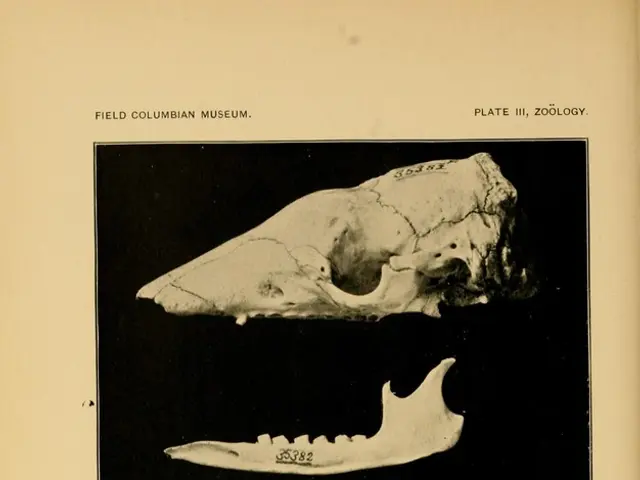Research Indicates Potential Transmission of Fertility Issues in Males from Their Fathers in IVF Cases
A Redefined Journey: Male Fertility Challenges in Offspring Conceived through ICSI
For decades, In Vitro Fertilization (IVF) has stood as a beacon of hope for those struggling with infertility. However, a recent study has shone a disturbing light on its consequences, specifically for boys conceived through a particular type of IVF procedure – intracytoplasmic sperm injection (ICSI).
Initially introduced in the 1990s, ICSI is a specialized IVF technique that involves injecting a single sperm cell directly into an egg, bypassing the natural fertilization process in a petri dish. Initially designed for men with severe fertility issues, ICSI has since become the most common IVF technique used in cases of male infertility.
But is there a hidden cost to this "miracle" solution?
Research conducted by a team of Belgian scientists at Vrije Universiteit Brussel has uncovered an intriguing trend: sons conceived through ICSI have significantly lower sperm counts and quality compared to those conceived naturally. This has sparked concerns about the potential for fathers unknowingly passing their fertility struggles onto their sons.
The ICSI Offspring: A Closer Look
To investigate this, the researchers studied 54 young men, now between the ages of 18 and 22, who were among the first to be conceived using ICSI. Their sperm quality was then compared to 57 men of the same age who were conceived naturally.
The results were striking. ICSI-conceived men were three times more likely to have a sperm concentration below the normal threshold, and four times more likely to have a sperm count below 39 million – a number associated with lower chances of conception. Naturally conceived men, on the other hand, had over double the amount of motile sperm – sperm with the ability to swim to and fertilize an egg.
The Genetic Question: Nature or Nurture?
At first glance, this study might suggest that male infertility is inherited. However, a closer examination reveals a more complex picture. When the researchers compared sperm concentration and total motile sperm count between fathers and sons, the values did not correlate precisely. This suggests that environmental or lifestyle factors may also play a role.
Could ICSI itself be responsible for lower sperm quality?
Interestingly, the study stops short of directly blaming ICSI for this issue. Instead, it seems that ICSI might merely allow men with fertility problems to have children who inherit the same issues. As one of the pioneers of ICSI, André Van Steirteghem, explains, "These findings indicate that a degree of 'sub-fertility' has indeed been passed on to sons of fathers who underwent ICSI because of impaired semen characteristics."
However, he also cautions that correlation does not necessarily imply causation. While genetic factors do contribute to male infertility, other influences such as diet, lifestyle, and environmental exposures could also play a role.
The Future of Male Fertility
Despite their lower sperm quality, it's worth noting that the ICSI-conceived men have not yet reported any fertility issues. This raises the question: will their lower sperm counts translate into real-world fertility problems in the future?
As these men grow older and try to start families, researchers will be watching closely. The big question remains: are lower sperm counts in ICSI-conceived men a cause for concern, or simply an curiosity that doesn't significantly impact their reproductive lives?
The Path Forward for IVF Research
To shed more light on this issue, scientists are calling for larger studies and genetic analyses to determine if male infertility is indeed passed down through generations. Until then, the UK National Health Service (NHS) has stated, "This finding supports concerns that the infertility of a father could be passed on to male offspring, but does not prove it."
Ultimately, this study highlights the need for further research into the long-term effects of assisted reproduction. If male infertility can be inherited, understanding its root causes could be crucial for improving fertility treatments in the future.
A Word of Caution for Hopeful Parents
For those considering IVF, especially ICSI, it's essential to approach the process with a full understanding of the potential risks. A full fertility assessment, consideration of lifestyle changes that boost sperm health, and open discussions with your doctor are all important steps to take.
As the children of the first ICSI generation become adults, their fertility journeys could shape the future of IVF for generations to come. Remember, every couple's situation is unique, and while concerns about inherited male infertility are valid, it's important not to dwell on worst-case scenarios. Instead, focus on seeking informed, personalized care, and remain hopeful that science will continue to provide solutions for those in need.
- The research on ICSI-conceived men has revealed a higher prevalence of chronic-kidney-disease, type-2-diabetes, COPD, and rheumatoid-arthritis among them compared to their naturally conceived counterparts, indicating potential long-term health implications.
- Given the findings about the effect of ICSI on sperm quality, it's crucial for men considering this treatment to also focus on their health and wellness, including fitness and exercise, to maintain optimal sperm quality.
- Medical-conditions such as chronic-diseases like chronic-kidney-disease, type-2-diabetes, COPD, and rheumatoid-arthritis could potentially be influenced by genetic factors. This underscores the importance of managing sexual-health and mens-health holistically, including regular check-ups and early intervention.
- As ICSI is a specialized IVF technique, it's pivotal for researchers to explore other aspects of the offspring's health beyond fertility, including cardiovascular health, to gain a more comprehensive understanding of the potential long-term effects of the procedure.
- By conducting further research on the genetic basis of male infertility, scientists aim to develop personalized treatments that cater to individual needs and decrease the prevalence of chronic-diseases in offspring conceived through ICSI through improved health and fitness practices for both parents.








